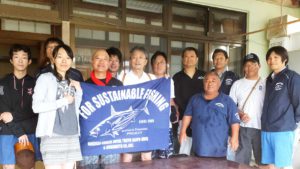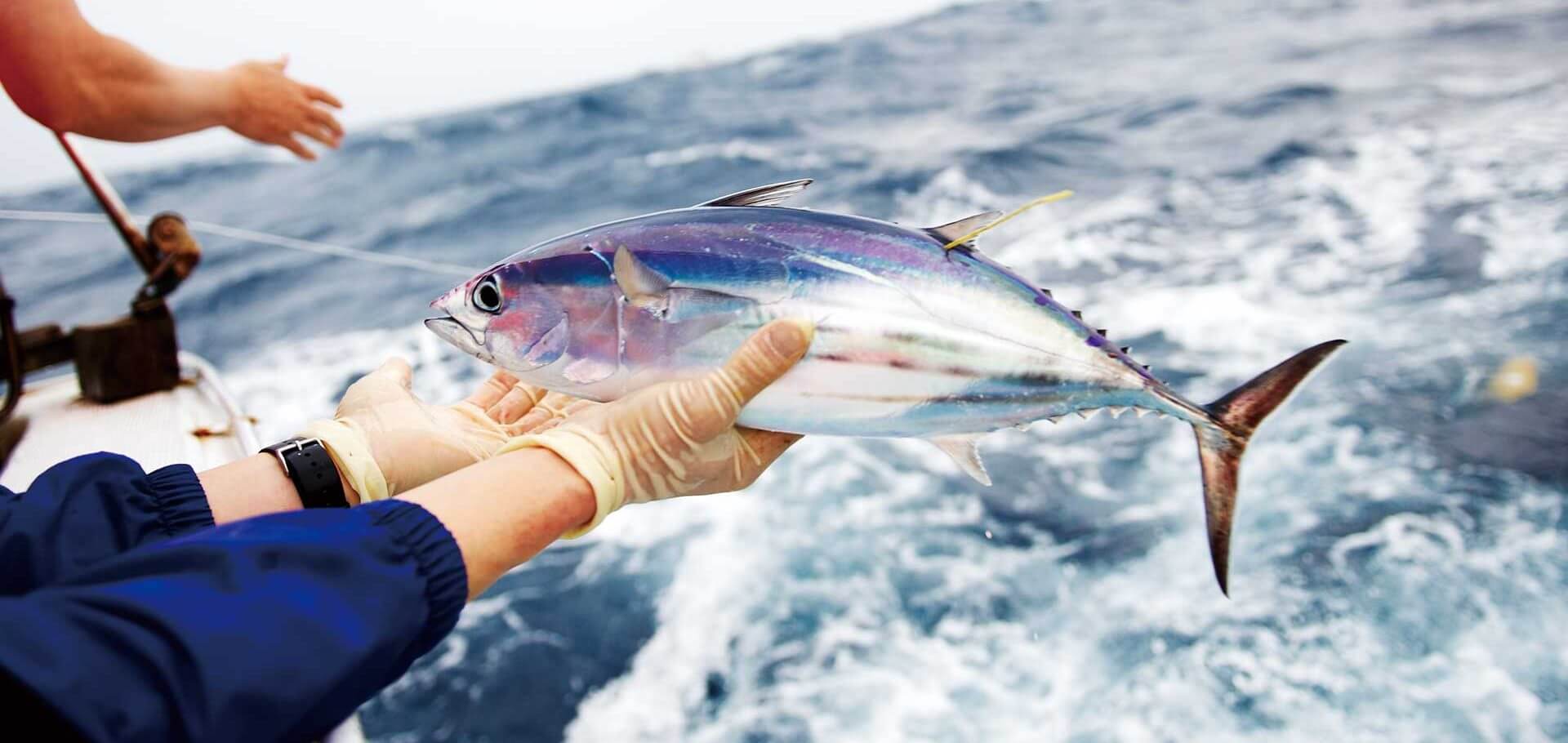Grilled, seared, fried, or canned, skipjack tuna is enjoyed worldwide in myriad ways. But perhaps nowhere does it play a more fundamental culinary role than in Japan, where it’s commonly eaten as sushi or dried and shaved into flakes called katsuobushi. These are sprinkled over vegetables and tofu or boiled with dried kombu (kelp) to make dashi, a traditional soup stock. Dashi has many uses, from boiling vegetables and meat to making sauces for noodles and tempura. It’s also a main ingredient in miso soup, an essential of any Japanese meal.
These days, consumers want to know where their food comes from. Is it from a sustainable family farm or multinational agribusiness? Imported or locally sourced? Free-range or factory farmed? Every fish, too, has a story of how it got from the ocean to your table.
As the number of fishing trawlers in the world’s oceans has increased, so has the global catch of skipjack tuna. Though the fish reproduce rapidly, overfishing is a concern and eventually catches will need to be curtailed. Although Ajinomoto Group is not directly involved in skipjack fishing, we source it for our flagship product, HON-DASHI®, a powdered form of dashi. Naturally, we want to support sustainable fishing practices.

To protect the skipjack, we need to understand it better. Information on its breeding habits, migration, and growth is vital to fishery management. But for a fish that’s always on the move, that’s a tall order. That’s why, since 2009, Ajinomoto Group has partnered with the National Research Institute of Far Seas Fisheries to tag about 10,000 skipjack a year off the Pacific Coast of Japan. The high-tech tags record migration routes and allow researchers to track the fish’s movements after they’ve been recaptured. We’ve learned that they migrate northward from subtropical waters via four distinct routes, not just on the Kuroshio Current as previously believed, and that they spend the daytime in the deep ocean, moving to shallower waters at night. Much has been revealed about their diet, as well.
But Japan is just one piece of the puzzle. Skipjack tuna occupy a vast swath of the world’s oceans. Ajinomoto Group is teaming up with researchers and fishermen from other countries to expand the scope of the survey and establish international rules for managing skipjack fisheries.
With careful management, future generations will also be able to savor this precious global food resource, be it on a plate or in a steaming bowl of soup.

